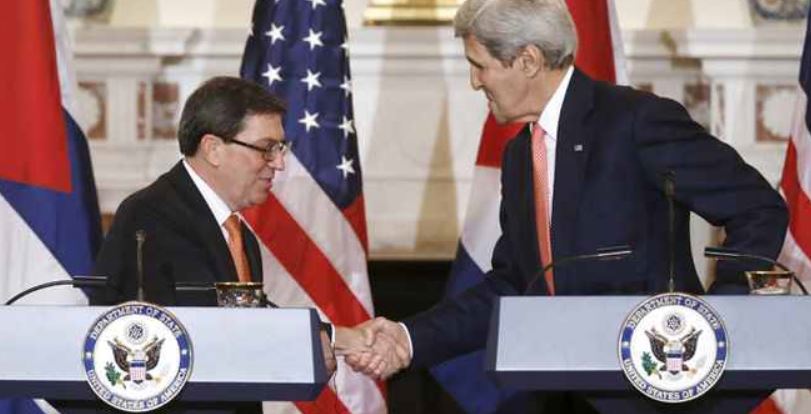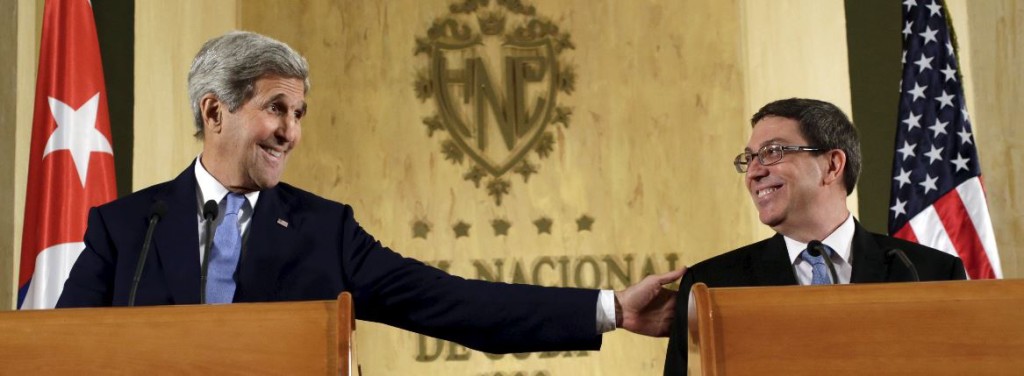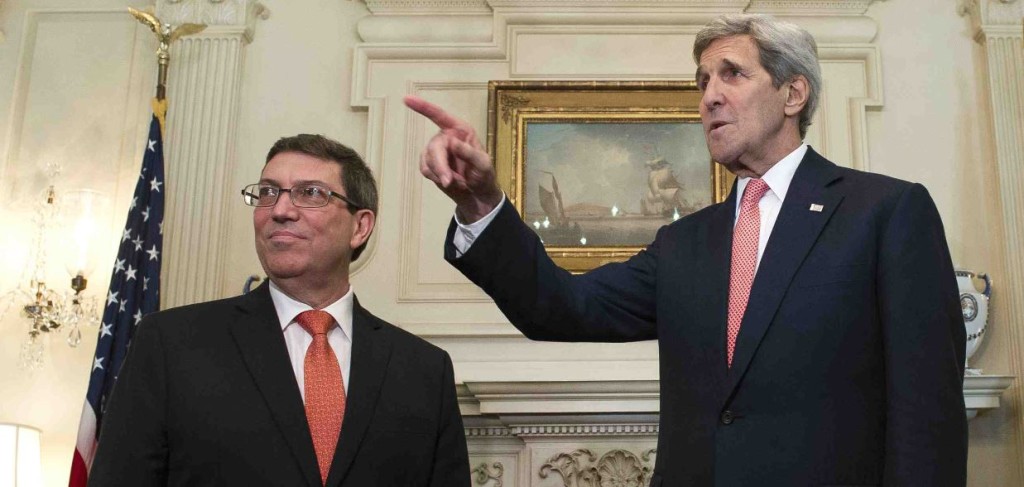
‘Cuba-U.S.: A historic thaw’
Editorial published Saturday (Aug. 15) in the Mexican newspaper La Jornada, as translated by Progreso Weekly.
—-
With the reopening of the United States Embassy in Havana yesterday, in the context of a ceremony led by Secretary of State John Kerry and his Cuban counterpart, Bruno Rodríguez, comes an end to a period of history characterized by the distancing and confrontation between two nations bound by geographic and cultural features.
One of the 20th Century’s proverbial geopolitical disputes — during which, for more than half a century, the island displayed admirable sovereignty and dignity — is overcome, and a healthy margin opens for the correction of some of the more nefarious and undesirable aspects of the superpower’s foreign policy.
To the historic character of the diplomatic rapprochement consummated yesterday must be added its condition, until a few years ago, of unsuspected event. In effect, the reestablishment of diplomatic relations — the product of months of secret negotiations between the governments of Barack Obama and Raúl Castro — contrasts with the projections that augured and propitiated that the coming together of Washington and Havana would occur after the violent overthrow of the island regime, the strict implantation of the capitalist model and even a civil war.
That mistake in the prospective analyses of one of the hemisphere’s most relevant conflicts can be explained by the stubborn insistence of the West and its allies in ignoring what now can be perceived as the political solidity and stability of the Cuban regime.
That same lack of criteria kept Washington, Brussels and the Organization of American States from understanding that the Cuban political processes don’t essentially depend on the continuity of the status quo that lasted half a century but respond to internal dynamics that are determined in a sovereign manner.
On the other hand, the positions expressed by both governments in yesterday’s ceremony lay the foundation for the reestablishment of a diplomatic relationship based on the respect for and the understanding of the similarities — and above all, the differences — that prevail between both countries, and it is to be hoped that it will be so, despite the impending change in the office of the U.S. president.
Of course, the distension at this juncture between the governments in Washington and Havana is not sufficient to put and end to the unjust, aggressive and illegal policy that the former has maintained against the island for more than half a century.
The big question on the bilateral agenda continues to be the repeal of the laws that uphold the economic blockade maintained by the United States against Cuba since October 1960, which prevail despite the express request, made by Obama himself, that they be annulled and whose repeal basically goes through the neighboring country’s Congress, in the hands of the Republican opposition, staunchly opposed to a rapprochement between both countries.
It is to be hoped, however, that the formal reestablishment of diplomatic relations, together with other administrative decisions such as a relaxation of the restrictions on travel to Cuba, will gravitate toward a change in the perception of the U.S. population and media about rapprochement with the island.
As of now, it is evident that the world is witnessing a turning point in the history of relations between Washington and Havana, and it is desirable that both nations, their respective authorities and people will have the high-mindedness needed to carry that transformation to a good outcome.



